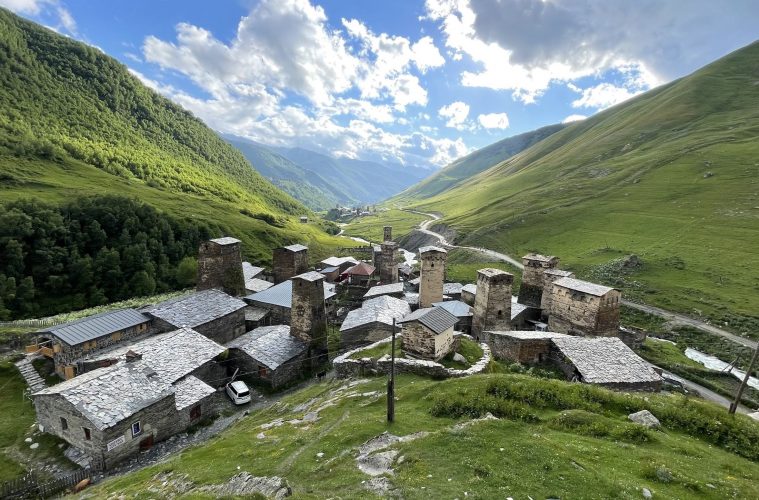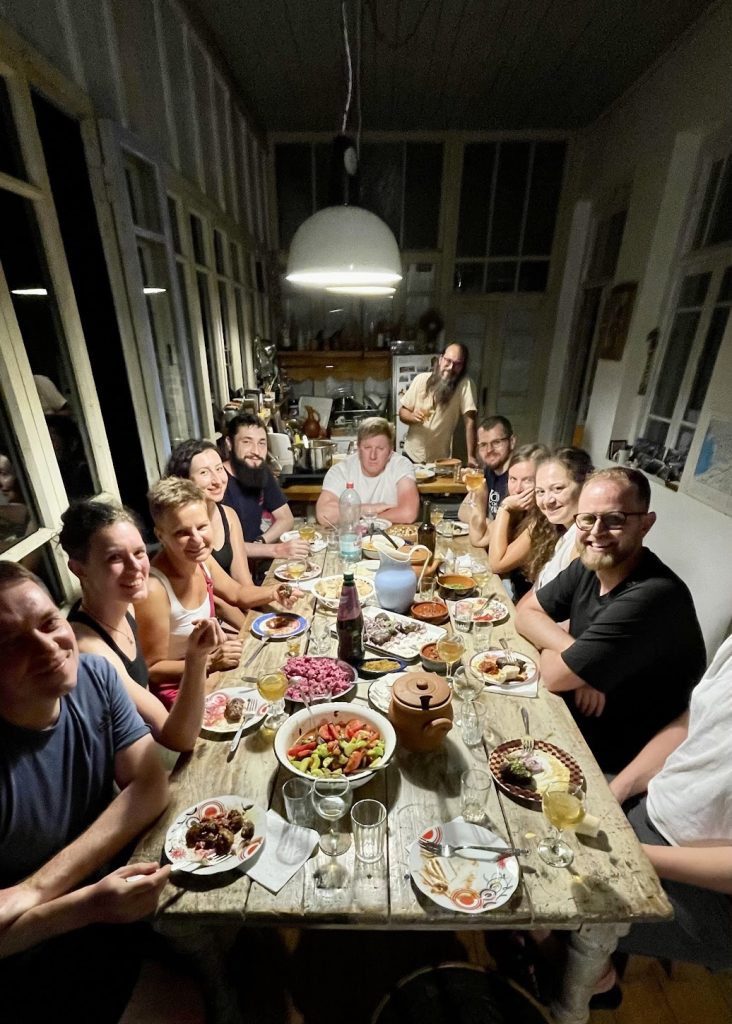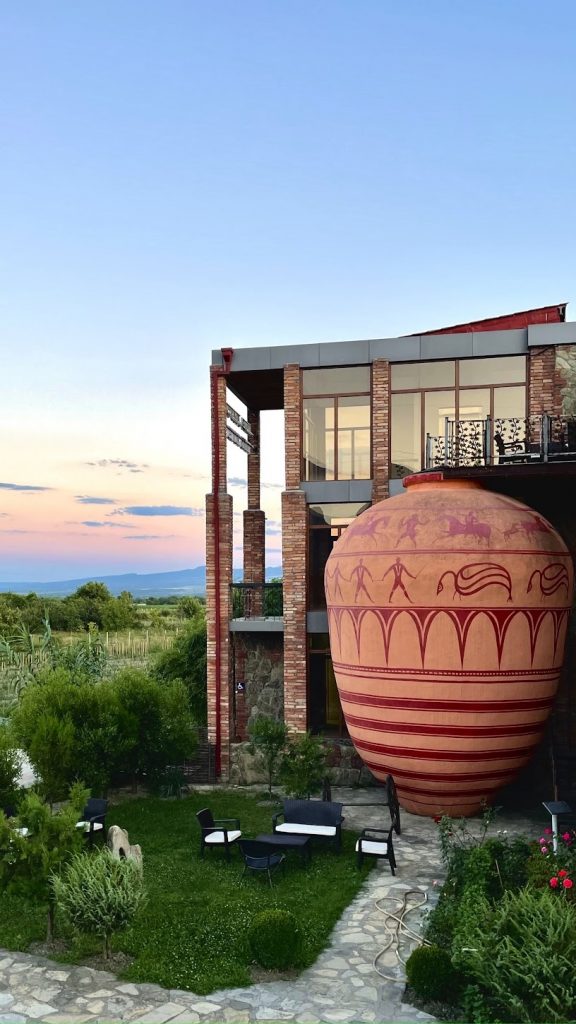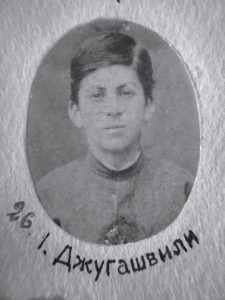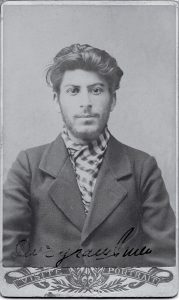A long, long time ago, the God was dividing the whole Earth among all the nations. Everyone started arguing and fighting to get the best piece possible. Everyone except Georgians. Tired of the hustle and bustle, they just sat down, brought out wine and food, and started a feast. They had so much fun that they didn’t even notice when the whole Earth had already been divided.
When the God realized he had forgotten about the Georgians, he rewarded them for not participating in the fight over land. He gave them a part of the Earth that he wanted for himself, which is why Georgia has its unique beauty and charm.
Although Georgians claim they treat this story only as a lovely legend, they all agree they live in a special place and are proud of their identity. And, while the big world rarely pays attention to the small Caucasian countries (Georgia, Armenia, Azerbaijan), they have things to offer that most do not expect.
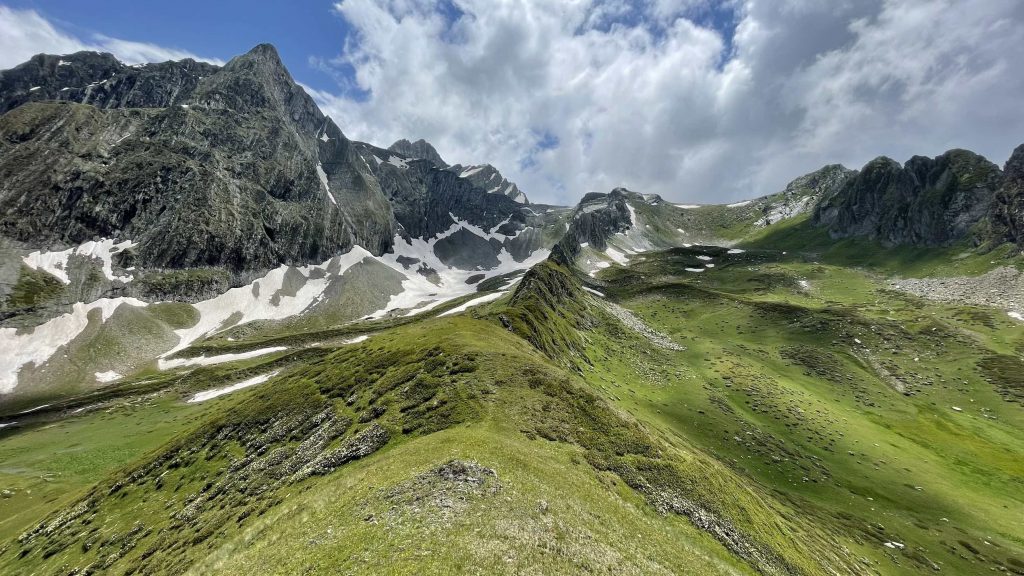
Caucasus range, Racha region | photos by Michal Jonca
Caucasus
The Caucasus is a bridge between the Pontic-Caspian steppe and the Middle East. Limited by the Black and Caspian seas, it has been the most convenient way to travel north to south (rarely in the opposite direction). The only (but huge) problem was always mountains – the Great Caucasus range is mostly higher than 3,000 meters above sea level, and the highest peaks reach over 5 kilometers.
The terrain made crossing it difficult but did not prevent the migration of peoples and armies. Persians, Macedonians, Mongols, Turks, and Russians are just the most powerful examples of people who invaded the Caucasus.
In times of danger, the local population fled to hard-to-reach mountains and passes. When peace came, they descended into fertile valleys. Despite these waves of history, Georgia created a resilient and durable but ethnically and culturally heterogeneous state. Because even Georgians like to underline their homogeneity, they live in a multicultural society consisting of dozens of smaller nations accompanying those larger ones: Svans, Adjarians, Tushetians, or Meskhetians.
If you’re looking for a unique Georgian experience, you shouldn’t miss visiting distant mountainous regions. Mysterious Svanetia with its unique language and ancient towers at the edge of the highest part of the Caucasus, breathtaking Tusheti with shepherds and yaks accessible only in summer, or coastal, hilly Adjaria for sun and sea.
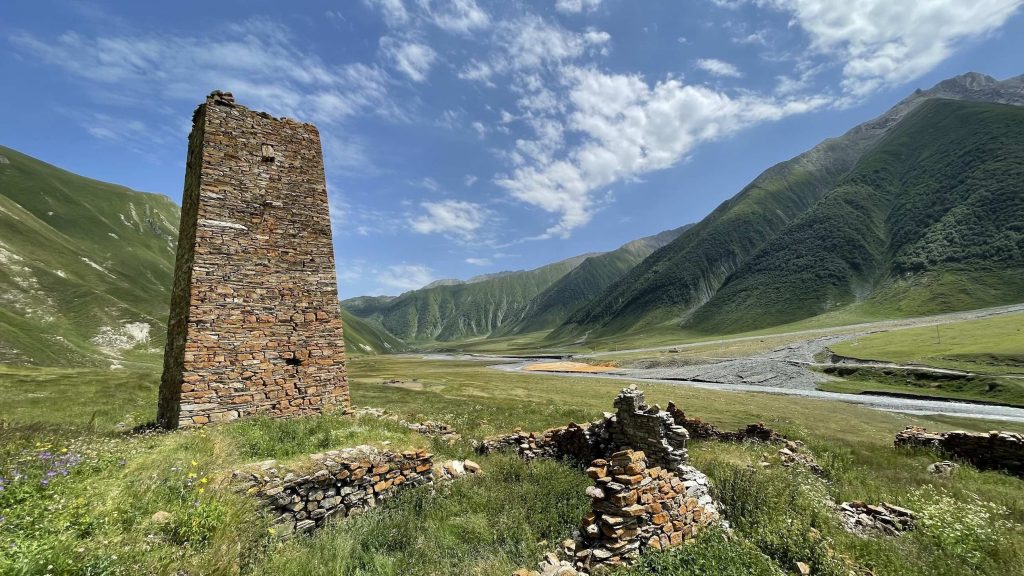
Truso valley, Georgia
Supra
Do you remember the legend from the introduction? Except for waiting and fighting for the best part of the Earth, Georgians started a feast. No wonder as the culinary layer is one of the fundamental factors in building a sense of cultural identity.
Supra is the most famous Georgian tradition. Although you can translate it as “feast” it doesn’t resemble the real shape of this event. Supra is much more than just eating and drinking wine together. It’s a celebration of life and meeting.
The most important person for each supra is called “Tamada”. He is responsible for the smooth running of the event and keeping people entertained. Traditionally, he should be an eloquent orator who leads the conversation, introduces toasts, and enlivens your day.
- Georgian feast – supra
- Winery in Kakhetia with a large kvamli (the jug for wine)
“Tamada” should lead the conversation, but no supra would be complete without toasts. Each toast is always accompanied by wine – the pride of Georgia, as their winery tradition has 8000 years!
The most important toast should come from the heart of each guest. It’s not only about celebrating life but also expressing understanding and respect among friends and relatives. There are both mandatory toasts (its list depends on the region, but you’ll always hear toasts for God, peace, and ancestors), and some that are improvised. Only tamada can inaugurate the toasts and pass the right to speak to another person at the table (passing the toast is called alaverdi). Most toasts need to be made by drinking an entire glass of wine at once. Some special toasts are made with special utensils, such as the horn of a mountain chamois.
Of course, no supra is complete without Georgian food! The more – the better. Georgian cuisine is mostly about dough, cheese, and meat. The most famous dishes are khinkali (dumplings with different fillings) and Khachapuri (cheese-filled bread). Georgian food is both delicious and unique, so it won’t be difficult to find something to your taste.
Stalin
Joseph Stalin was one of the cruelest dictators in the history of humankind. For almost thirty years of his rule, the Soviet Union became a totalitarian, criminal state in which many millions of people were cruelly killed.
However, many people do not know that Joseph Stalin’s real name was Ioseb Besarionis dze Jughashvili, and he came from Georgia. Stalin was born in a small town Gori, 86 kilometers from the capital of Georgia, Tbilisi. To this day, in Gori, you can visit the Museum of Stalin and the train that traveled the leader of the USSR. In addition, there is one of the very few monuments to the dictator. Creepy, isn’t it?
- Class Gori Religious School photo of Stalin, believed to be taken in 1893.
- Police photograph of Stalin when he was 23 years old (1902).
Georgians have a massive problem with the assessment of Joseph Stalin. Almost everyone agrees that he was a cruel criminal and a totalitarian dictator. But some people still consider him a great politician and leader, their compatriot from a small and poor country, who was strong enough to rule almost half of the world, and who defeated Adolf Hitler in World War II.
Despite its small size, Georgia is an incredibly fascinating country. The unique and sometimes painful history connects there with the joy of life and the extraordinary power of nature, which has been shaping our life and choices since the moment of man’s arrival on this piece of Earth.
Or, maybe there is a grain of truth in the legend?
Maybe, it was God who gave Georgians Georgia?
____________________________________________________
 Author’s Bio
Author’s Bio
Michal is passionate about trail running and travel. He is a Travel Leader at Solisci Adventure Club and the Community Manager at Passport Photo Online.

